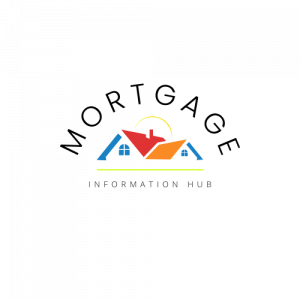
An Individual Voluntary Arrangement (IVA) is a legally binding agreement between an individual and their creditors to repay a portion of their debts over a fixed period, usually five years.
This can be extended by another 12 months to allow you the individual to make the agreed payments. If the individual can make a lump sum payment, this could end the IVA sooner.
An IVA is a formal alternative to bankruptcy and is available to people living in England, Wales, and Northern Ireland.
An IVA is typically used by individuals who have a significant amount of unsecured debt, such as credit card debt, personal loans, and unpaid bills. To qualify for an IVA, an individual must have at least £5,000 in unsecured debt and have a regular income that can be used to make payments towards the IVA.
To set up an IVA begins with the individual seeking the advice of a licensed Insolvency Practitioner. The insolvency practitioner will assess the individual’s financial situation and, if an IVA is deemed to be appropriate, will work with the individual to create a proposal for the IVA.
This proposal will detail the individual’s income, expenses, and assets, and will include a repayment plan for the individual’s creditors.
Once the proposal has been created, it will be sent to the individual’s creditors for approval. If more than 75% of the creditors vote in favour of the IVA, it will be approved and legally binding on all of the individual’s creditors.
During the term of the IVA, the individual will make regular payments to the insolvency practitioner, who will then distribute the funds to the individual’s creditors.
The individual will also be required to disclose any changes in their financial situation to the insolvency practitioner, such as a change in income or the acquisition of assets.
At the end of the IVA, any remaining debt that is covered by the IVA will be written off. This means that the individual will no longer be legally responsible for repaying that debt.
An IVA has several advantages over bankruptcy. For example, an IVA allows an individual to keep their assets, such as their home and car, whereas in bankruptcy, these assets may be sold to repay creditors.
An IVA also allows an individual to continue to trade, whereas in bankruptcy, an individual’s business may be closed. Additionally, an IVA can be completed in a shorter period than bankruptcy, typically five years compared to up to 15 years for bankruptcy.
However, an IVA also has several drawbacks. For example, it will be recorded on the individual’s credit file for six years, which can make it difficult to obtain credit during that time.
The individual will be required to disclose the IVA on any credit application or job application that asks about previous bankruptcies or debt arrangements.
An IVA can be expensive. The individual will be required to pay a fee to the insolvency practitioner for setting up and administering the IVA, as well as any other costs associated with the IVA, such as court costs. Additionally, the individual will be required to make regular payments to the insolvency practitioner, which can be a significant financial burden.

Written in August 2023 by:
Sam Chester
Take advantage of the free* 30-day trial at checkmyfile.com.
Begin today!
*new customers only
Want to know how to improve your credit score?
Download our free guide
Debt can have serious impacts on your mental, physical, and financial health.
Reach out to these organisations for free advice on managing your debts, creating a budget, and finding a way forward.
Please don’t keep your debt hidden; seeking help and support can lead to a healthier financial future.

We’re like human search engines, but with a side of humour!
So ask away, and we’ll sprinkle some laughter into your answers! No silly questions, only hilarious responses allowed!

The content within this article is as accurate as the date it was written. To ensure the most up to date information, you should consult with one of the experts that we work with as every lender and their polices are different and can be changed or amended without notice.
This website is for information only and does not constitute financial advice. Our mortgage advisers are all fully qualified to provide mortgage advice in accordance with the Financial Conduct Authority (FCA) regulations. We only exclusively operate with businesses that are authorised and regulated by the FCA. All advice offered will be unique to your individual circumstances.
Some Buy to Let mortgages are not regulated by the FCA. You should carefully consider securing other debts against your home. If you do not keep up your mortgage repayments, your home may be repossessed. Equity released from your home will also be secured against it.

Ready to join the party?
Give us a ring-a-ding!
We're thrilled to hear from you! Whether it's a question, a suggestion, or just a friendly chat, we're all ears!
Calling us is like a direct line to awesome-ness! Our team is here to make your day brighter!
Don't be shy, let's talk and have a blast together!

🌟 We're here to assist you every step of the way in finding the perfect broker for your needs.
Simply fill out the form below, and our knowledgeable team will serve as your trusted mortgage guides.
Now, let's lighten the mood with a mortgage-related joke:
Why did the mortgage broker bring a ladder to work?
Because they wanted to reach new heights in finding the best deals! 😄🏠